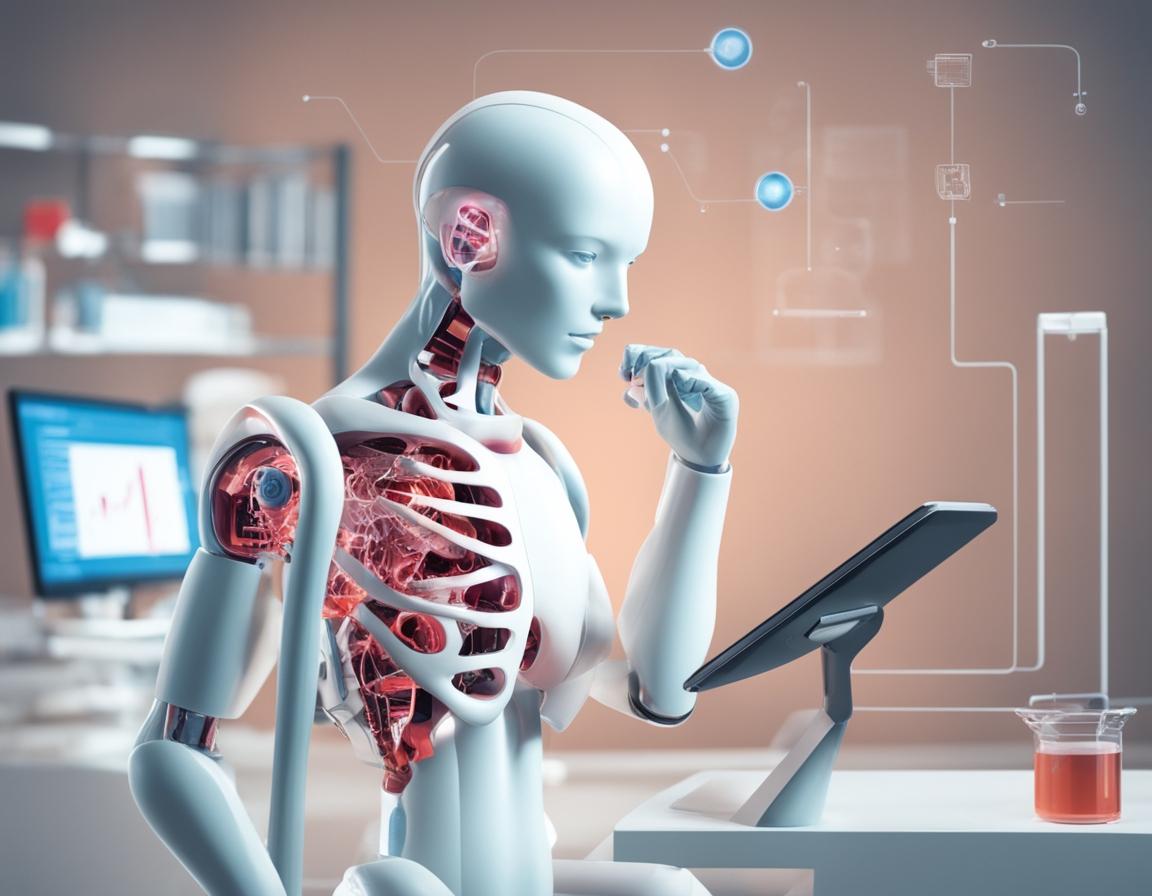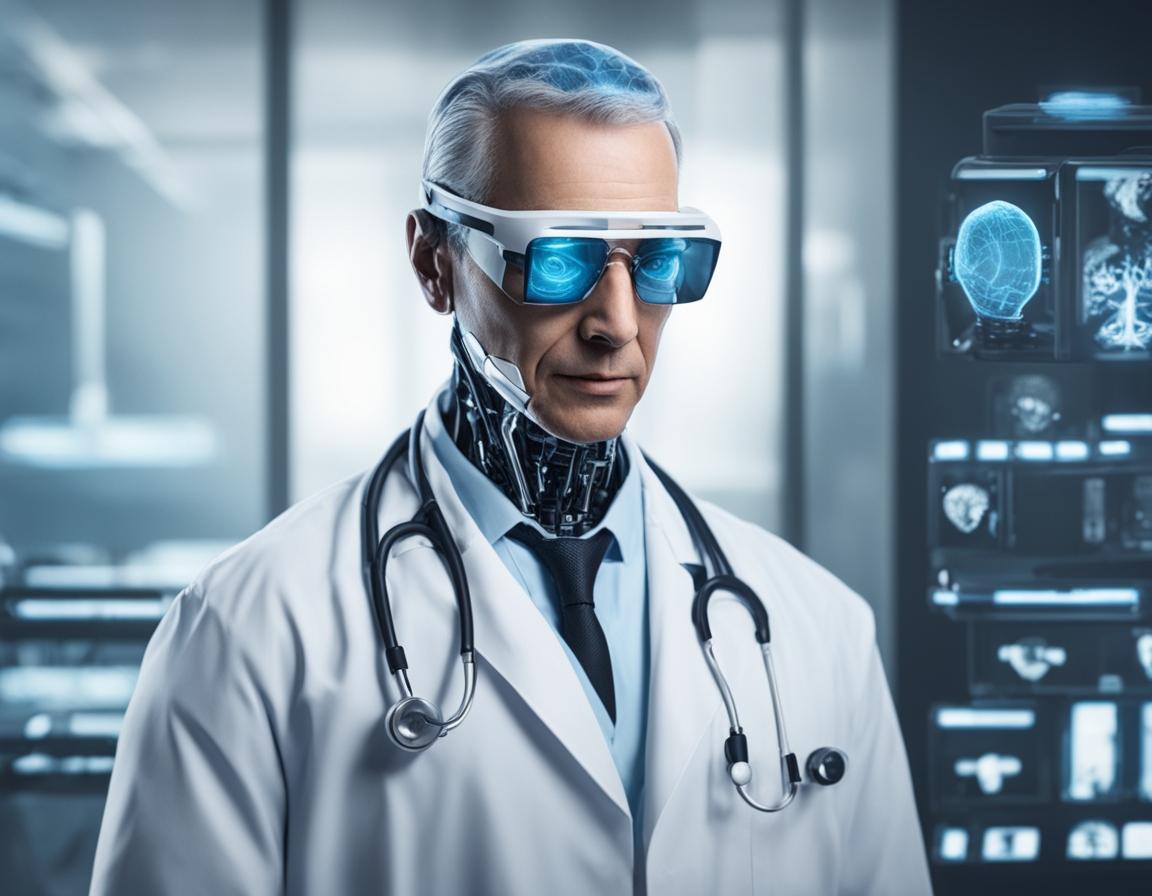
How AI is Revolutionizing Healthcare in 2025
Healthcare is undergoing a profound transformation, driven by the rapid evolution and adoption of artificial intelligence (AI). In 2025, AI technologies are firmly embedded within clinical practice, research, administration, and patient experience, reshaping how healthcare is delivered worldwide.
From enhancing diagnosis accuracy to streamlining workflows and empowering personalized medicine, AI is unlocking unprecedented potential to improve outcomes, expand access, and reduce costs.
This comprehensive guide explores the key ways AI is revolutionizing healthcare in 2025, highlighting breakthrough innovations, real-world applications, and future directions.
AI-Powered Diagnostics: Faster, More Accurate, and Accessible
Traditional medical diagnosis often depends on clinician expertise and manual data interpretation, which can be time-consuming and error-prone. AI systems now analyze vast and complex medical data—imaging, genomics, electronic health records—with remarkable speed and accuracy.
Key applications include:
-
Radiology: Deep learning models detect fractures, tumors, and diseases in X-rays, CT scans, and MRIs as accurately as expert radiologists, accelerating diagnosis and treatment initiation.
-
Pathology: AI assists in analyzing tissue samples and slides, identifying cancer cells and other abnormalities with high precision.
-
Dermatology: AI algorithms classify skin lesions from photos, enabling early detection of melanoma and other conditions through smartphone apps.
-
Cardiology: AI analyzes ECGs and imaging to predict arrhythmias and heart diseases, guiding timely interventions.
These advances not only improve diagnostic accuracy but also extend specialized expertise to underserved regions via telemedicine and AI-assisted remote evaluation.
Personalized and Precision Medicine: Tailoring Treatment with AI
AI integrates multi-dimensional patient data—genetic profiles, lifestyle, biometrics—to develop personalized treatment plans optimized for efficacy and minimal side effects. For example:
-
In oncology, AI-driven models predict tumor behavior and response to therapies to guide tailored regimens.
-
In chronic disease management, AI monitors patient data in real-time, adjusting medications dynamically.
-
AI-powered virtual health coaches provide customized behavioral guidance, promoting adherence and wellness.
Personalized AI treatments improve patient outcomes and satisfaction, enabling truly patient-centered care.
AI-Enabled Clinical Workflows: Efficiency and Safety Gains
AI automates routine but critical clinical tasks, freeing healthcare professionals to focus on complex decision-making and patient interaction. Examples include:
-
Automated note-taking during consultations.
-
Medication reconciliation and allergy checks.
-
Predictive analytics identifying patients at risk for adverse events or readmission.
-
Intelligent scheduling to optimize resource use.
By reducing administrative burden, AI enhances efficiency, lowers burnout, and improves patient safety.
Medical Research and Drug Discovery Accelerated by AI
AI’s ability to process extensive biological datasets accelerates research cycles and drug development. Key breakthroughs:
-
Identifying novel drug candidates via machine learning.
-
Designing clinical trials with optimized patient selection.
-
Enhancing biomarker discovery for disease diagnosis and prognosis.
This speeds availability of new therapies, including for rare and complex diseases.
AI in Patient Engagement and Access
AI-driven chatbots, virtual assistants, and telehealth platforms empower patients with personalized information, symptom assessment, appointment booking, and adherence support.
This digital engagement enhances access to care, education, and behavioral support, especially in remote or underserved areas.
Ethical, Regulatory, and Implementation Considerations
While AI offers enormous promise, challenges remain around:
-
Data privacy and security.
-
Algorithm fairness and bias mitigation.
-
Clinical validation and regulatory approvals.
-
Integration into existing healthcare systems.
-
Maintaining human oversight and trust.
Addressing these issues is critical for responsible AI adoption.
Looking Ahead: The Future of AI in Healthcare
By the end of 2025 and beyond, AI will increasingly become an inseparable partner in healthcare:
-
Embedding into medical devices and wearables for continuous monitoring.
-
Driving autonomous diagnostic and therapeutic interventions.
-
Enabling collaborative AI-human decision-making frameworks.
-
Democratizing healthcare globally, reducing disparities.
The synergy between AI innovation and compassionate clinical care will define the next generation of health systems.
Conclusion
Artificial intelligence is revolutionizing healthcare in 2025 by unlocking new frontiers in diagnosis, treatment, efficiency, and patient experience. From AI-enabled diagnostics that rival human experts to personalized therapies guided by machine learning, AI is elevating care standards worldwide.
Patients, providers, and healthcare organizations that embrace these innovations stand to benefit from improved outcomes, enhanced access, and sustainable cost management. As AI matures, a future where intelligent machines and human clinicians collaborate seamlessly to deliver precise, compassionate care is rapidly becoming reality.
Stay informed and engaged with the evolving AI healthcare landscape to harness its full potential for better health and life.










